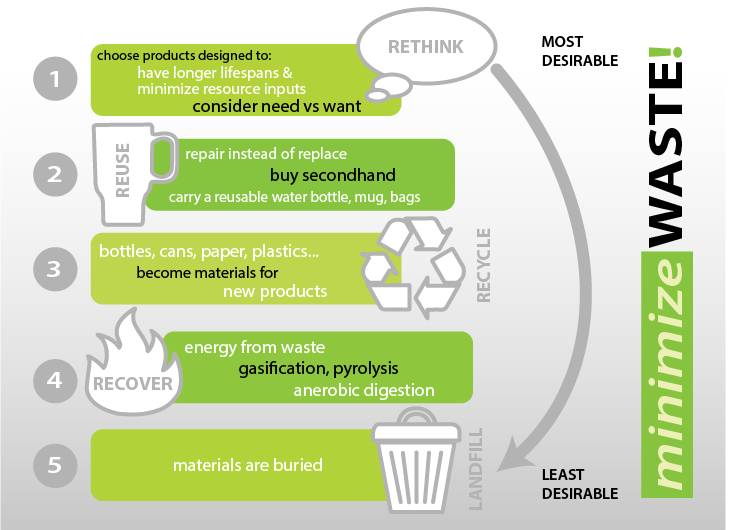How To Recycle
The University of Saskatchewan has an effective and easy-to-use single-stream recycling program. This means that all clean recyclables can be placed in any blue bin around campus to be separated from our landfill-bound waste.
The university's recycling program is identical to that operated by the City of Saskatoon's residential blue cart program. Their website features a full guide of accepted/unaccepted items in a multitude of languages.
Single-Stream Recycling
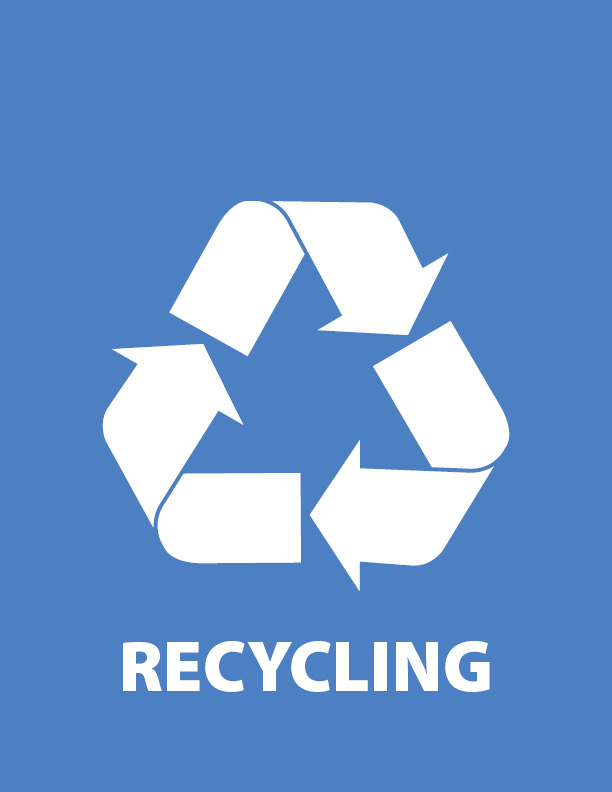
The university's recycling program is single-stream in nature, meaning that all types of recyclables can go into any recycling bin you see on campus. This includes:
- Paper (clean and uncontaminated)
- Cardboard
- Glass
- Plastic (excluding plastic bags or film)
- Metal
- Beverage containers (excluding disposable coffee cups)
Batteries and Small Electronics
Personal batteries and electronics can be recycled by Call2Recycle at various public locations. Visit www.call2recycle.ca to find locations near you.
Institutional (work-related) batteries can be brought to the following campus battery collection locations:
- Agriculture Stores (Agriculture Building)
- Health Science Stores (Health Science Building)
- Safety Resources (Research Annex)
- Chemistry Stores (Thorvaldson Building)
- Facilities Stores (University Services Building)
- WCVM Shipping and Receiving
- Engineering Shipping and Receiving
Recycling Ink and Toner Cartridges
There are multiple options for recycling ink and toner on campus:
Lexmark:
Lexmark offers their Lexmark Cartridge Collection Program (LCCP). At their website, select “individual toner returns” and follow instructions.
At the end of the submission process a return label will be downloaded which you can print off and attach to the toner to return. Purolator will be dispatched to your location to pickup the toner. There is no cost for this service.
Xerox:
Xerox offers their Xerox Green World Alliance program which offers free recycling of their toners. Please follow the instructions at their page to create a Xerox account and request your “Eco boxes” to package Xerox toners in and send them back to Xerox. This service is free of charge.
Hewlett Packard (HP):
HP offers free recycling of their used toner cartridges through the HP Planet Partner Program, where you can request pre-paid shipping labels (for when you already have a box) or them to send you a pre-paid box to return your used toners in.
Ricoh:
Ricoh offers there free Toner Bottle and Cartridge Return Program. There you will be able to generate a Purolator Courier Pre-paid label to ship the used toner bottles or cartridges back to them.
Other Recyclables
Other Items or Materials
For information on the best places to donate or recycle various materials or items, the Saskatchewan Waste Reduction Council has a searchable database.
Household Hazardous Waste
Some things need special handling for safe recycling or disposal. For example, compact fluorescent bulbs have small quantities of mercury in them. The City of Saskatoon recycles or disposes safely of a variety of items or materials at their monthly Household Hazardous Waste Days.
Landfill
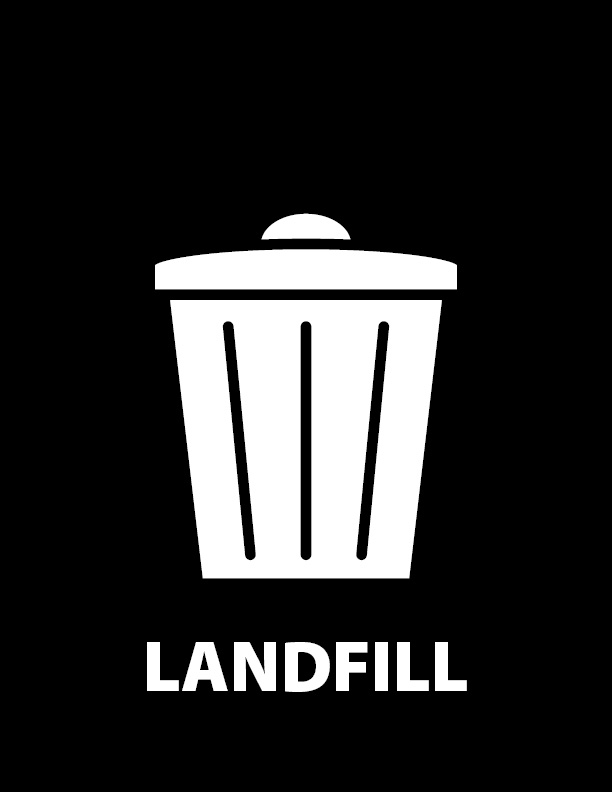
All non-recyclable, non-hazardous materials can enter the university's landfill waste stream. Remember that landfillable waste is the last resort in the waste hierarchy and that all other options—waste reduction, reuse, recycling, or composting—should be pursued if possible before waste enters the landfill.
Recycling Bins and Containers
Recycling and landfill bins vary across campus, but all bins feature uniform signage as seen below.
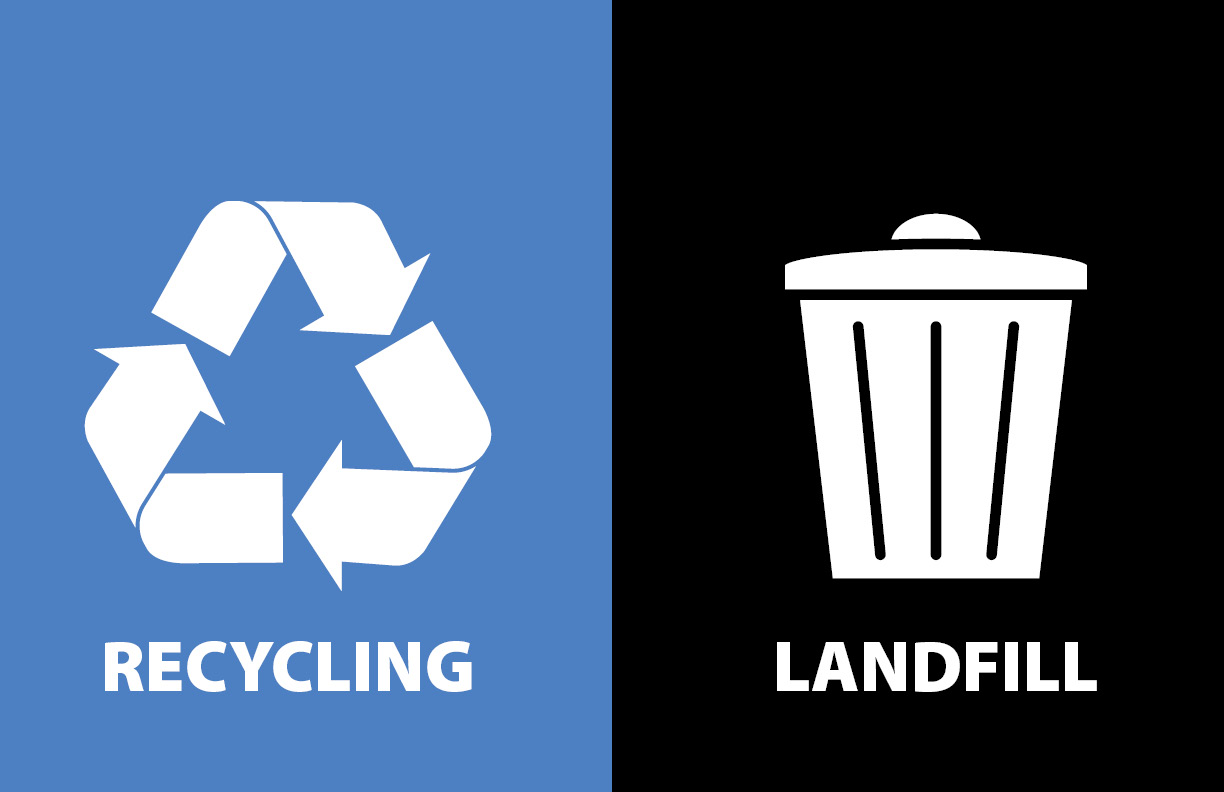
The university has hundreds of buildings, meaning that sometimes the modernization of our bins is missed in some spaces. If a bin on campus does not match the signage seen above, please submit a request through the Facilities PAWS Channel with the specific location of the bin needing to be updated.
Office Containers and Bins
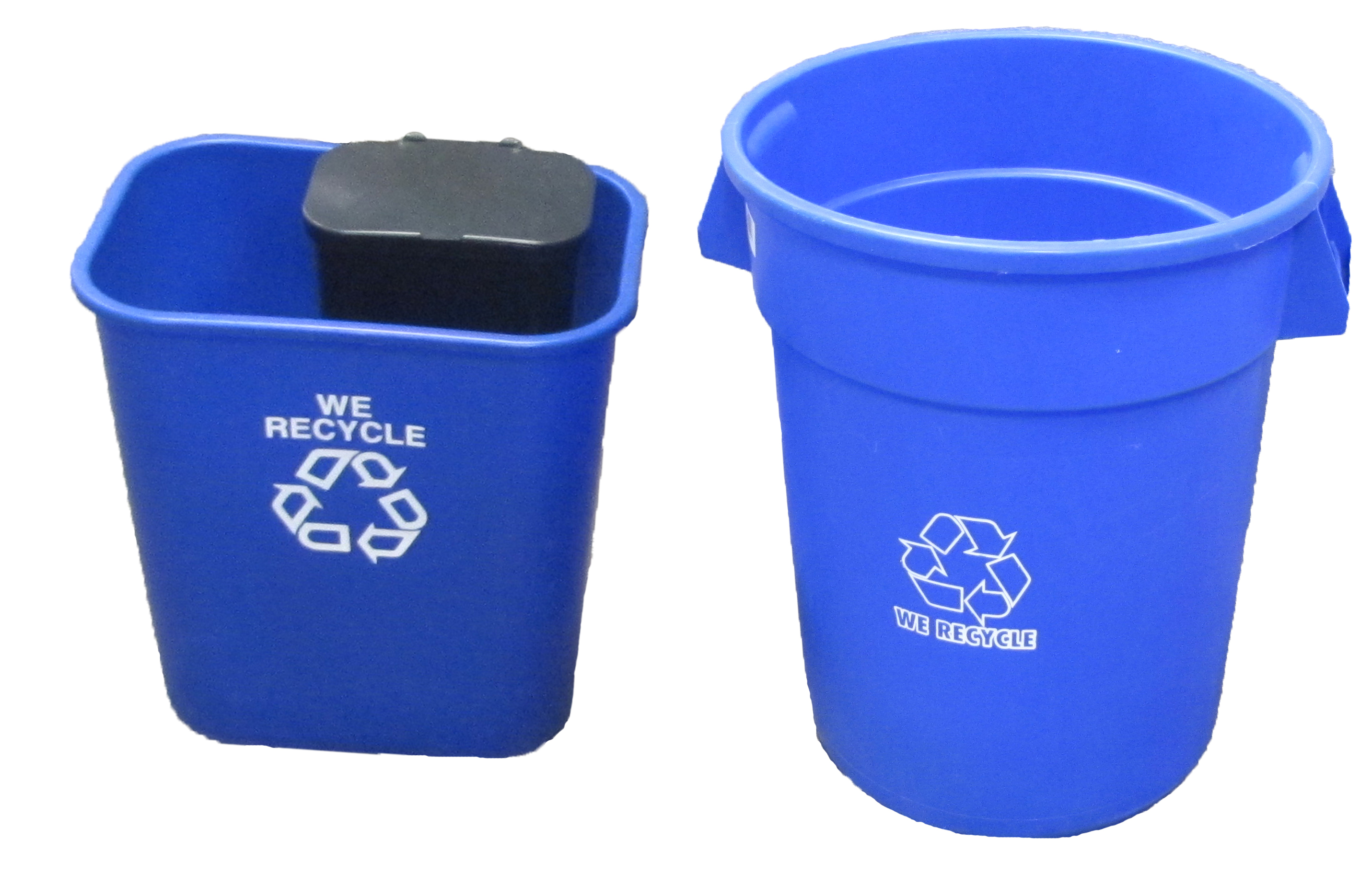
The following bins may be seen in offices around campus.
Please reserve the large open blue bins for bulk paper and cardboard recycling.
For small blue bins with the small black side attachment, use the black bin for landfill waste.
If you are in need of additional bins for your area, please submit a request through the Facilities PAWS Channel.
Outdoor Containers and Bins
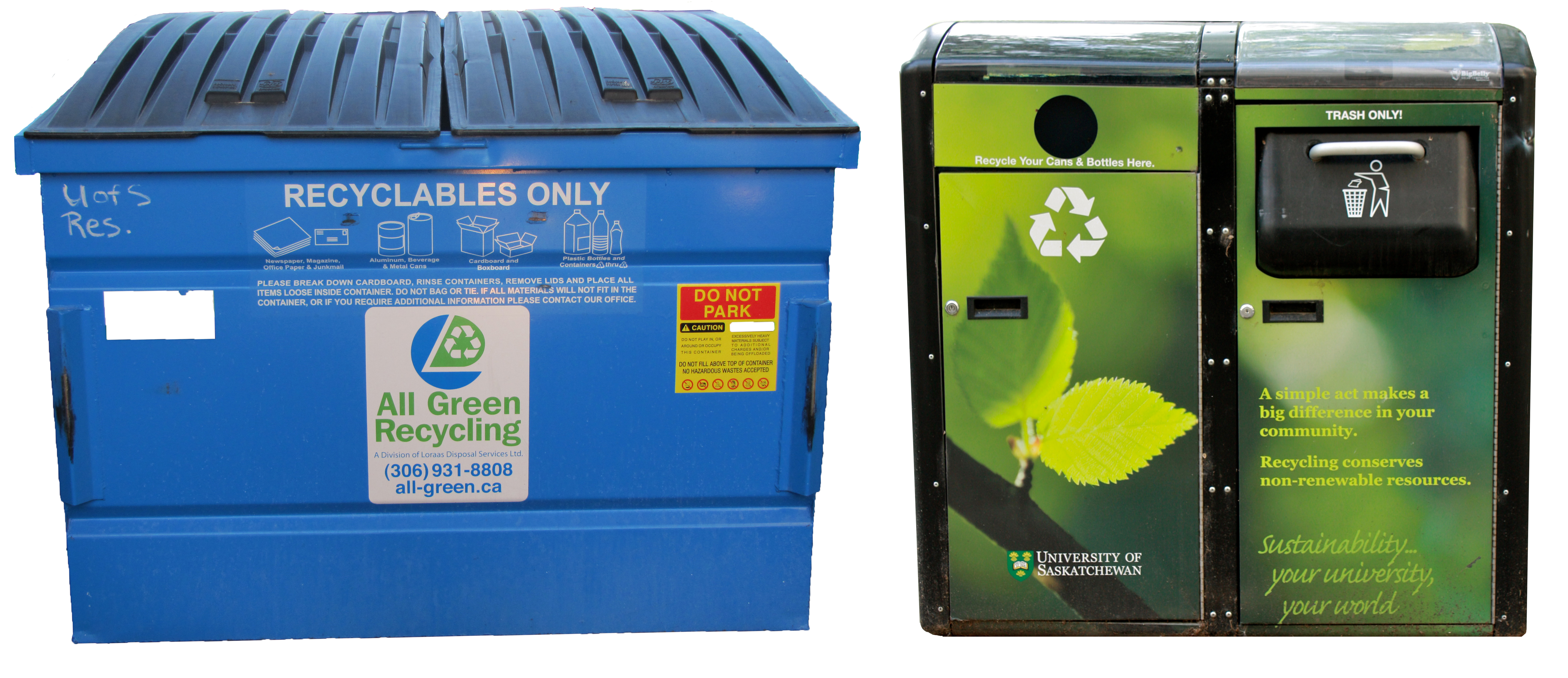
The following bins be seen around campus outdoors.
The "Big Bellies" (right), while featuring different signage, are still fine for recycling (left) and landfill (right) waste.
Please do not use large university dumpsters for personal waste.
Educational Signage
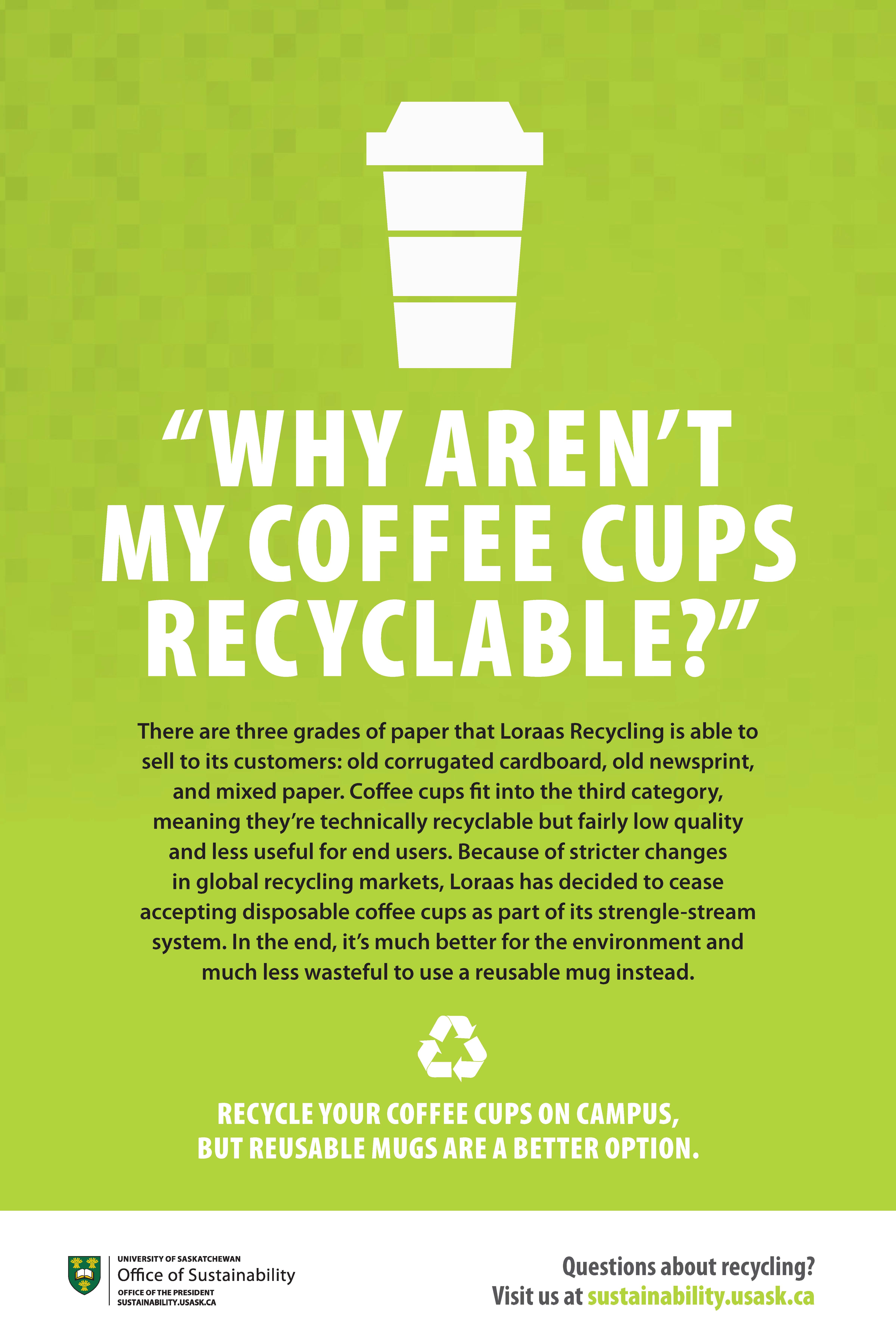
Educational signage is available to address common recycling issues. These posters are meant to highlight some of the more troublesome or confusing aspects of campus recycling and should help to clear up misconceptions.
The five different posters can be seen in PDF format below.
- Caretaker Practices
- Black vs. Clear Garbage Bags
- Small Plastic Waste
- Recycling Contamination
- Coffee Cups
If additional topics or signage are needed, please contact the Office of Sustainability with more information.
Residence Recycling Guides
For students in residence looking to make full use of the recycling program, please refer to the following guides that contain building-specific informtaion:
Special Handling Requirements and Unapproved Items
Special Handling Requirements
Shredded paper must be collected within another bag, which must be tied up before entering the recycling:
Plastic bags and film are not recyclable and must go into the landfill.
The following items will be accepted into the recycling provided that they are clean and uncontaminated:
- Lab plastics
- Custodial cleaning products (please rinse)
- Aluminum foil
Events
Are you planning a special event and need recycling services for it? Do you need help planning the event to ensure it does not generate a lot of waste? The Office of Sustainability has many resources and tips available for making sure your event maintains a minimal waste footprint. Read more at our Sustainable Events page.
For conferences or meetings, the Sustainable Conference Guide has practical tips for hosting a meeting or conference.
For all other requests, feel free to contact the Office of Sustainability for assistance.
Learn More
There are many reasons to join the recycling efforts on campus:
Local Benefits
- Net revenue from this program will be directed towards sustainability initiatives on campus. These endeavors could include: expansion of our program to encompass other materials, grants for research projects, hosting symposiums, scholarships and bursaries, and many other initiatives.
- We employ U of S students.
- Recycling takes a strain off of our waste disposal system and keeps our campus beautiful.
Global Benefits
- Consumer goods like beverage containers are made from non-renewable resources. Due to waste, these resources are being rapidly depleted.
- Non-renewable energy sources are major inputs to the manufacturing and distribution of bottles, cans, and containers. Excessive energy consumption contributes to global climate change.
- Recyclable materials in the waste stream take up valuable landfill space and are not biodegradable.
- 10% of the world's aluminum supply is consumed by beverage containers. Recycling will help conserve this resource.
- It is 20 times more energy efficient to recycle an aluminum container, than to manufacture it from scratch.
- Conserving landfills preserves land space for other uses such as farmland or natural habitats.
- Plastic recycling will reduce global dependence on oil.
To learn more about the waste production and reduction, please check out these links: www.garbagerevolution.com and www.storyofstuff.com
Minimize waste by following the waste hierarchy: first rethink, then reuse, recycle, recover and finally send waste to the landfill. Download a waste hierarchy poster here.
